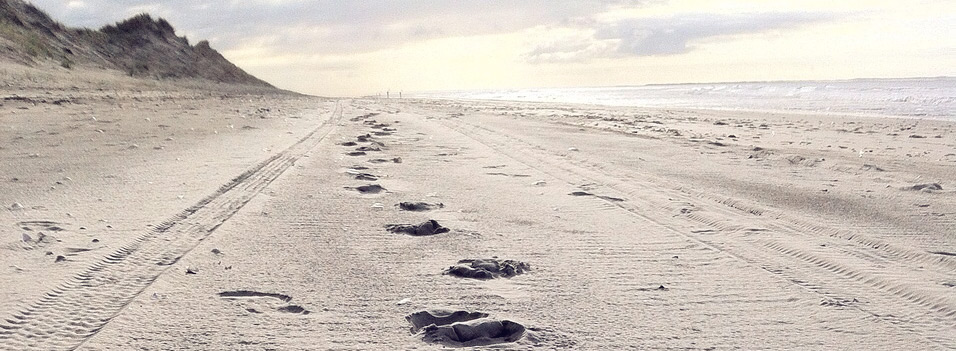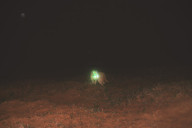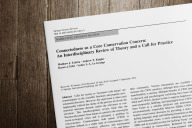The search for meaning in life: what can nature conservation do?
The search for meaning in life or for meaningful nature experience, requires some kind of meaningful activity as a prerequisite. But what is actually considered a meaningful activity in nature? Graduate researcher Lieke Verhoeven took that question to the Dutch public as part of her recently completed MSc thesis. Lieke kindly agreed to prepare this English summary for eyes4earth.org
The concept of meaning in life appears to be receiving increasing attention in public consciousness. This trend has also been noticed by the Dutch nature conservation organisation Staatsbosbeheer (National Forestry Service) with their constituents increasingly seeking out meaningful activities in nature. However, much remains unclear about this demand and, in particular: What do people consider to be meaningful and what does this mean for nature conservation organisations?
Such questions gave rise to this research. Staatsbosbeheer is one of the largest nature conservation organisations in the Netherlands. The organisation traditionally focuses on conservation and management but, being a public organisation, education and leisure opportunities are becoming increasingly more important. Simply said, people need to be included in nature conservation in order to create better support for nature. In the words of Aldo Leopold: “Connectedness to nature leads to concern for nature” (Leopold, 1949).
This provides an impetus for why Staatsbosbeheer is eager to explore the possibilities for meaningful activities in nature. The main goal of this research was therefore to find out what images different people hold with respect to the concept of meaning in life, what role nature can play in this, and what the practical implications are for nature conservation organisations in the Netherlands. Much has been written in the literature about meaning in life, although different terms are used to describe more or less the same concept. The literature study carried out as part of this research showed that there is a clear link between meaning in life, culture (especially religion) and nature. In particular, nature appears to have many meaningful elements for people. The concept of meaning in life also seems to fit well in the contemporary trend of longing for a ‘better world’. To meet the need for meaning in life, a market for meaningful and spiritual activities is developing; although there is some debate about whether meaning in life should be treated as a marketable good.
 For this research, two online questionnaires were conducted. The first questionnaire was directed at the ‘meaning-searchers in the Netherlands’: i.e. people who have an affinity with meaning in life, spirituality and / or nature. This questionnaire yielded 550 responses. The second questionnaire was directed toward the employees of Staatsbosbeheer, especially those employees who worked as foresters/managers specialised in education, PR and leisure. A total of 65 surveys were completed.
For this research, two online questionnaires were conducted. The first questionnaire was directed at the ‘meaning-searchers in the Netherlands’: i.e. people who have an affinity with meaning in life, spirituality and / or nature. This questionnaire yielded 550 responses. The second questionnaire was directed toward the employees of Staatsbosbeheer, especially those employees who worked as foresters/managers specialised in education, PR and leisure. A total of 65 surveys were completed.
The most important results from the ‘meaning-searchers’ questionnaire were that the majority of respondents indicated that meaning in life is very important for them, and it crosses the minds of most people at least once a day. In addition, most people see themselves as being very concerned with nature, and think that nature can play an important role in the search for meaning in life. In general the ‘meaning-searcher’ in this research could be characterized as a woman between the age of 36 – 45 years old, higher educated, raised religiously but nowadays sees herself not as ‘religious’ but ‘spiritually interested’.
The aspects in nature that ‘meaning-seekers’ consider to be most meaningful are the feeling of awe and wonder, the forgetting of daily concerns, quietness, being a part of a bigger whole and beauty. The activities that most people find meaningful are the ‘usual’ leisure activities, like hiking but silent and night hikes were also popular. These activities were preferably engaged with on a smaller scale (e.g. fewer people). Respondents indicated that they would be highly interested (or might be interested) in joining meaningful activities if nature conservation organisations like Staatsbosbeheer were to organise these. Respondents indicated that they would be willing to pay some money for this but only for the short and easily accessible activities. Some of reasons given for not being willing to participate in an organised meaningful activity are that people do not have the need to join these kinds of activities, that they prefer to experience these activities by themselves or that they have moral or fundamental objections against organised meaningful activities.
The second questionnaire for the employees of Staatsbosbeheer showed that the majority of the employees have, in some way, experienced or got in touch with the concept of meaning in life during their work. Staatsbosbeheer already organises some activities that people might consider meaningful, with elements of wandering and exploring, but without explicitly mentioning the word ‘meaningful’. These activities have been quite successful. The employees agreed that there is a growing interest for meaningful activities in nature, which is particularly reflected in a growing demand for being able to spend the night in nature and to participate in meditation activities. Almost all agree that the concept of ‘meaning in life’ fits the organisation naturally. Also, many employees think it would be feasible to invest more (time and money) into meaningful activities. Conditions for the activities mentioned by the employees are, for example, that Staatsbosbeheer would only invest in activities that fit the organisation’s profile, and only when and where there is a demand for certain activities.
One could say that, in the Netherlands, there is indeed a burgeoning interest for meaning in life and meaningful activities in nature. The advice for Staatsbosbeheer is therefore to continue organising activities with elements of a meaningful experience, but without putting too much emphasis on the ‘meaningfulness’ of the activity. In terms of how to best manage nature areas with ‘meaningfulness’ in mind, Staatsbosbeheer could focus on the elements in nature that might trigger a meaningful experience (like quietness, beauty and peace). Concerning the more spiritual activities, Staatsbosbeheer could play a facilitating role. For example, by allowing nature areas under their jurisdiction to be utilised (for a fee) by organizations specialised in facilitating meaningful activities or by collaborating with those service providers.
The results of this research are expected not only to be applicable for Staatsbosbeheer, but also for other nature conservation organisations. This research provides more insights into the demands of people looking for meaningful experiences in nature and will hopefully serve as both a useful tool and reference for nature conservation organisations seeking to act upon this thirst for meaning in life.


 Further information & contact
Further information & contact







Be the first to share a comment